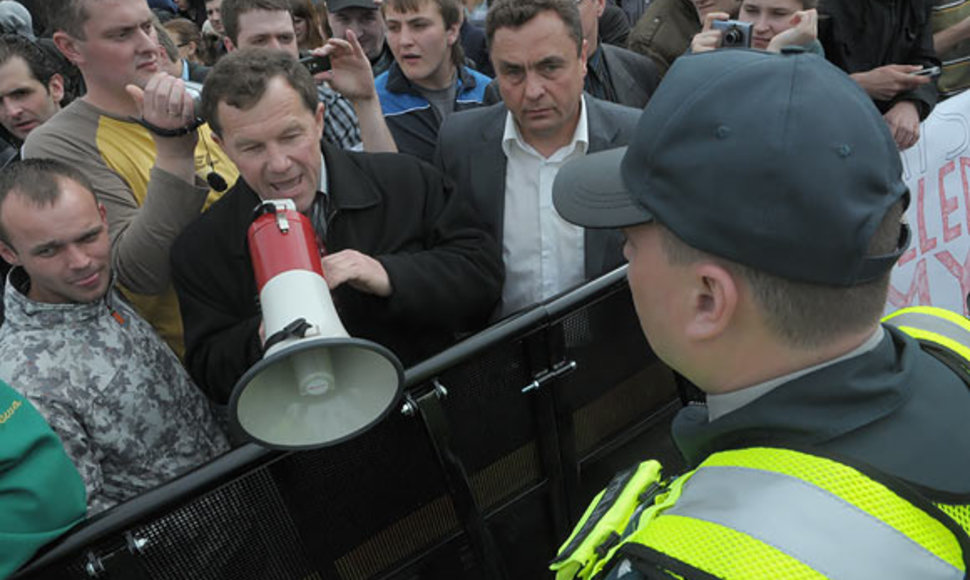Both MPs were imposed the highest possible penalty for crossing the police line that was surounding the site of the event.
Gražulis insisted he would appeal the ruling, while Uoka said he would take his time to examine the court ruling.
The two parliamentarians were tried for only one violation, although the police had registered three counts of administrative violation. In addition to crossing the police line, the MPs disobeyed the police and refused to obey their legitimate orders. Gražulis and Uoka were among the mob that assembled to protest the Baltic Pride, the firts LGBT rights event in Lithuania that took place in May 2010. The police guarded the event heavily, fearing violent clashes between participants and opponents.
However, the two latter charges against the two MPs were dropped after the Parliament refused to strip Uoka and Gražulis of their legal immunity against prosecution for violations that would be punishable by administrative arrest.
The two cases were returned to the Vilnius court after Lithuania's Supreme Administrative Court gave a ruling (on 24 February) that the issue of administrative charges against the two politicians should be returned to the court of first instance.
In early November 2010, a Vilnius court had dropped administrative charges against Uoka and Gražulis, saying the conduct of the two parliamentarians during the pride march was subject to criminal investigation. The Parliament refused to strip the two of their legal immunity, preventing the case from being heard.















